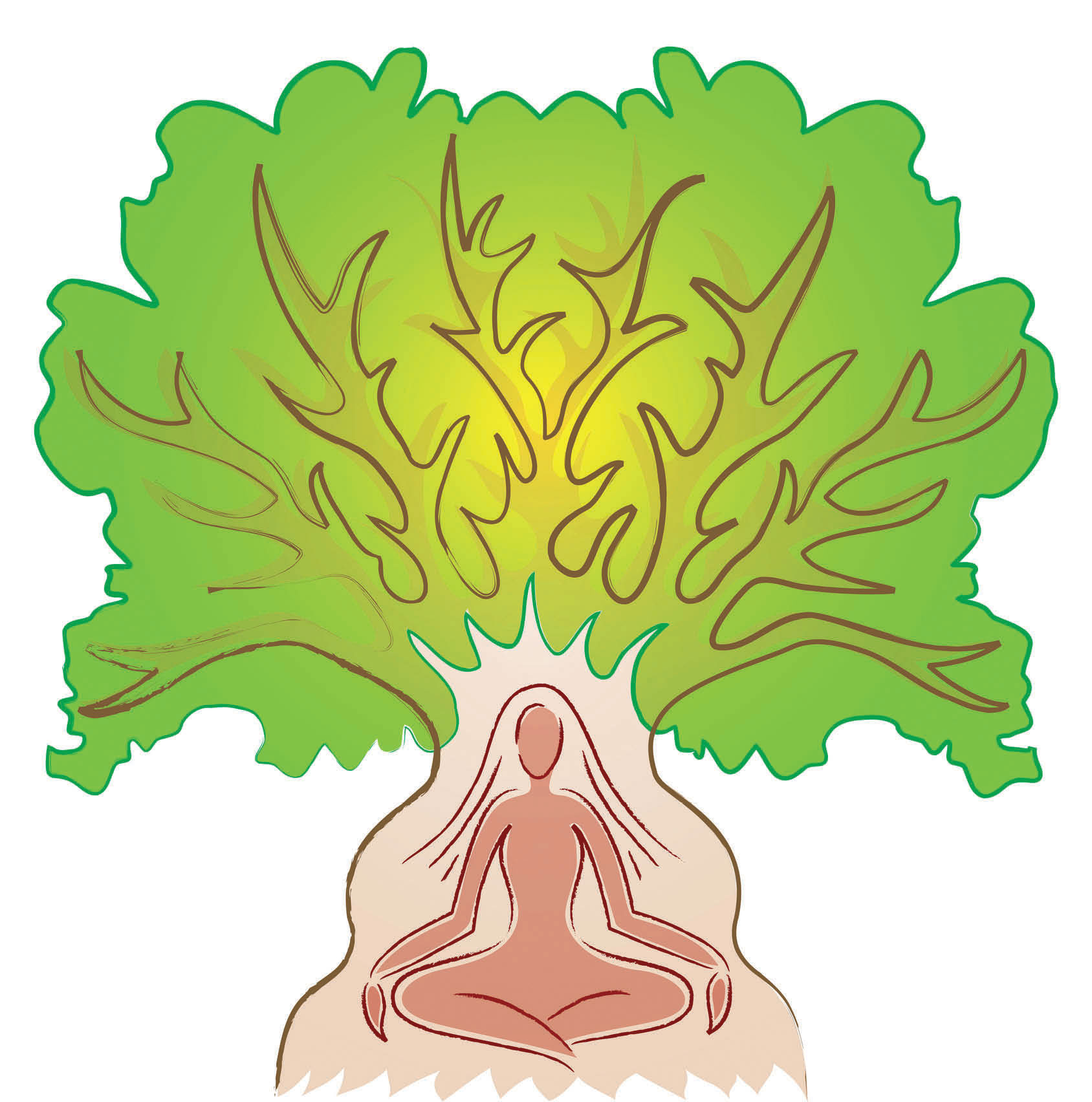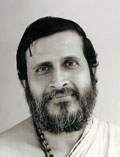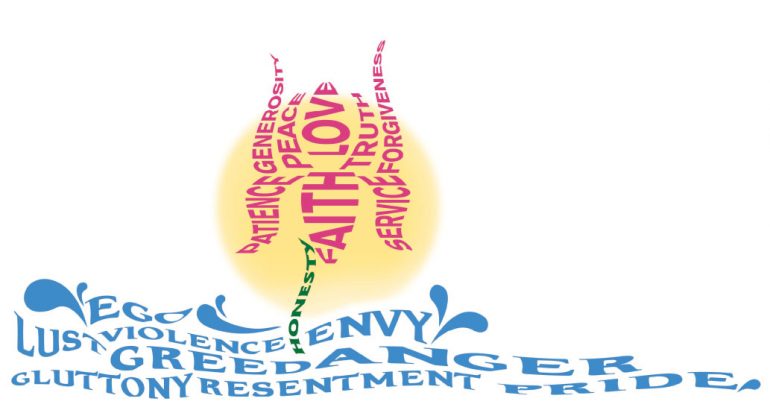Anger remains one of the most uncontrollable emotions in human life. Anger is primitive. It is wild. It is toxic, stubborn and self-reinforcing. Anger robs us of the peace of our heart and of the harmony, wisdom and natural bliss of our soul. It suppresses our immune system and poisons our shared collective life with misery, chaos and violence.
While anger has always been with us, it is on the rise in our world today. The reach of mass media has intensified anger as a primary focal point of our cultural life and political dialogue. Anger literally saturates the air with television and film, video games and popular music that exploit and celebrate violence.
How can we not be vulnerable, however much we focus on our spiritual life? How can we not be affected? What is our responsibility, as spiritual seekers, to become true embodiments of peace in such a world?
Yet we are human. Though we may tell ourselves that we want to get rid of anger, all too often, we remain victims of its negative influence. Anger snares us in an instant. Justifying itself, it digs in to stay, seducing us with righteous indignation.
Most of us fail to comprehend the magnitude of the toxicity that anger generates in our body, mind and spirit or how it adds to the burden of anger at play in the world. We are blind to the space we make for anger in our lives. We allow suppressed anger and frustration to smolder and create a core of silent, easily stirred resentment within.
As we continue on the path of the spirit and develop in consciousness, very few of us want to be angry. Gradually, we begin to see that those who are the targets of our anger are not the only ones who suffer. We come to realize that we suffer the most whenever we are angry, that anger has a hurtful interior aftermath that is difficult to heal.
So it is not surprising that at my public talks around the world, one of the most common questions people ask is, “I don’t want to be angry, yet I get angry. How can I get rid of my anger?” The question is: Why do we get angry as often as we do, even when we don’t want to? Why is it so hard to let go of anger?
Anger, like all bad habits, plants deep roots in our consciousness when left unattended. In our early life, whenever we got angry, we took the easy road. We were satisfied with taking things at face value. We did not dive deep into the cause of our anger to look for an antidote. Anger was sinking into our subconscious mind, making a safe home for itself. Our reactive mind was free to flare up at any external provocation. We had no control over it. Anger was free to come, again and again, at will.
If we are to find peace, if we are to become instruments of peace in our world, we must dig below the surface. We have to uncover the deeper truths at work whenever anger rises. We must uproot the illusions that justify and sustain our anger if we are to generate understanding and wisdom, forgiveness and resolution. Any illusion has to be brought into the light of consciousness.
By now on our spiritual path, we probably know that we are being driven by the habitual patterns of our subconscious mind. Our subconscious is the master. We are only the servant. But let us not forget: we create our subconscious out of our repetitive, unconscious thoughts and actions.
In the Bhagavad Gita, Lord Krishna tells us that anger is born in the mind which is full of desires. When our expected conditions of mind are challenged, whenever our desires hit a roadblock, we feel provoked. Anger manifests, hypnotically clouding our vision and deluding our intellect.
The solution to any problem presupposes the fundamental need to understand its cause and effect. The universal law of causation (Law of Karma) teaches us that there is a seed behind every manifestation. Nothing happens without a cause. Once we know the cause and see the magnitude of anger’s destructive effects, we will be motivated to leave no stone unturned in finding ways to work with anger at the root of its manifestation.
The ego demands approval and appreciation. It requires reinforcement of its existing view of itself and the world. It naturally seeks to control. The wounded ego looks for the opportunity to attack, to take revenge on whatever threatens it. Negative thoughts begin to crowd the mind, triggering complex biochemical reactions that compromise our immune system. In other words, anger literally poisons us, at the spiritual and cellular level.
To repeat, anger is born in the unconsciousness. No patchwork approach is going to work in addressing it or moving beyond it. To free ourselves from anger, we have to be resolute. We have to upgrade our consciousness, to move to a higher level, where we are not enslaved to our thoughts and emotions. That is no easy task. We have to become the architect of our thoughts…to consciously move from a self-centered, shallow and shortsighted, myopic vision to an ever more comprehensive one.
To be successful in that effort, we ground ourselves in acceptance of the universal laws that harmonize and govern life in its totality. Through regular meditation practice, we deepen our alignment with the timeless principles that the masters of all faith traditions have lived and taught from time immemorial. Our inner awareness intensifies. We develop heightened sensitivities to the subtle harmonies of the larger good within and around us and how to respond when they are disrupted.

The demonic power of anger is enormous. It consumes those who leave it unchecked and magnifies itself in our collective life. If we are going to heal it and be true to ourselves, if we are going to serve the divine intention for life and generate more peace and beauty, goodness and grace in ourselves and the world, we can no longer be slaves to the ego and to anger.
Tremendous conviction and will power are required. We need to continually practice transforming all hostility that arises in us. We cannot kill or suppress our anger. That merely blinds us to its power and how it works. What we can do, and what we must do, is acknowledge anger, use it as a catalyst for expanding our consciousness, and transform its energy into compassion.
Gurdjieff, the great mystic philosopher, reminisced about his early childhood days. He tells us the story of his grandfather who, at the time of his death, calls Gurdjieff and tells him, “I have no property that I can give you but I want to give you a piece of advice which, if you follow in your life, you will be richly rewarded. Whenever you get angry, postpone your decisions by 24 hours.”
If you can postpone acting in anger, if you can pause for a few minutes, the process of transformation can begin.
Be alert. Live in awareness of each moment. When you are provoked, notice the clouds that immediately start to gather in your mind. Pause. Take a few deep breaths. Watch your breath and resolve to postpone reacting. Recommit yourself to being an instrument for good. Place yourself firmly in the field of divine protection and guidance and wait for wisdom and inspiration to come.
In the divine field, you awaken to understanding, forgiveness and compassion. You are empowered. Be sure to wait to act until you know your actions have no stain of bitterness, no discoloration of anger or revenge.
If you are truly aware, you cannot be angry. Anger needs your unawareness, your slumber. The paradox is that anger has a role to play in expanding your consciousness. It is a wake-up call. It reminds you of your need to practice mindfulness – to become aware in the moment of what you are doing, what you are thinking, what you are feeling, what is happening, what is needful.
Left unchecked, anger deforms the heart and deludes the mind. Make awareness your ever constant, informing companion and guide, so it can lead you to acceptance, to forgiveness, so it can return you to love.
The Buddha says, “Those who are free of resentful thoughts surely find peace.” The content of our thoughts matters. We need to de-clutter our mind, to empty it of the outmoded accumulations of the past that deplete rather than add to our life.
I encourage everyone to practice releasing troublesome thoughts from the mind each and every day. If we don’t empty the trash in our kitchen every day, it begins to stink. Clean trash bins don’t stink. Our mind is no different.
A clean, clear mind is happy. You are happy or unhappy according to the quality of the company you keep in your own mind. Keep good company with the positive. Use any negative thought as a rock to climb to greater heights. A higher world of light and love shines within and beyond the physical realm. It is through communion with those higher realms that transcendence becomes possible.
One particularly effective practice in this regard is rephrasing your thoughts. Consciously follow your thoughts and rephrase any that are negative with powerful, constructive ones. Over time, the power of the negative mind diminishes. It melts away as joyful, creative, happy thoughts and emotions take the lead in the life of your mind.
At bedtime, relax your body consciously and then breathe deeply, with awareness. Look to see if there is anyone at whom you harbor anger or resentment. If so, bring their image to mind. Welcome them and tell them that you harbor no ill feelings toward them, that you are releasing all the troublesome memories of the past, and that all is well. Hug the person and release them to the light. Feel the joy of releasing all the heavy burdens of the past. Repeat this technique regularly and trust that love and healing are happening.
Anger and resentment are not qualities of your soul. They don’t belong to the real you. That which is born one day dies. If anger and resentment are born in your mind, then they will have to die. Love, forgiveness and compassion are qualities of your soul. They will never die and never fade away. They will permeate the universe with the passage of time to usher in the era of peace and blessedness on earth.
 Sri Sri “Baba” Shuddhaanandaa Brahmachari is a universal humanitarian and visionary. As an economist-turned monk, his vision combines both aspects of his background. He has authored a biography of his spiritual master, Baba Lokenath, and books including “The Incredible Life of a Himalayan Yogi,” “The Little Book of Meditation,” and “Making Your Mind Your Best Friend.” As Founder/Chairman of Lokenath Divine Life Mission (LDLM) he works relentlessly for the emancipation of women and children in the slums of Kolkata and remote villages of West Bengal. Recently celebrating its Silver Jubilee, LDLM has pioneered micro credit programs and eco-friendly farming. Mobile medical vans serve over 200,000 patients per year. Baba conducts seminars on breathing, relaxation, meditation and positive thinking globally for schools, corporations, hospitals, and prisons. He addressed the Parliament of World Religion in Chicago (1993) and Barcelona (2004); the Conference on Poverty Alleviation, Karicho, Kenya (2004); and was a special invitee to the U. N. World Millennium Summit of spiritual leaders, New York, (2000). www.ldlm.info; www.babalokenath.org
Sri Sri “Baba” Shuddhaanandaa Brahmachari is a universal humanitarian and visionary. As an economist-turned monk, his vision combines both aspects of his background. He has authored a biography of his spiritual master, Baba Lokenath, and books including “The Incredible Life of a Himalayan Yogi,” “The Little Book of Meditation,” and “Making Your Mind Your Best Friend.” As Founder/Chairman of Lokenath Divine Life Mission (LDLM) he works relentlessly for the emancipation of women and children in the slums of Kolkata and remote villages of West Bengal. Recently celebrating its Silver Jubilee, LDLM has pioneered micro credit programs and eco-friendly farming. Mobile medical vans serve over 200,000 patients per year. Baba conducts seminars on breathing, relaxation, meditation and positive thinking globally for schools, corporations, hospitals, and prisons. He addressed the Parliament of World Religion in Chicago (1993) and Barcelona (2004); the Conference on Poverty Alleviation, Karicho, Kenya (2004); and was a special invitee to the U. N. World Millennium Summit of spiritual leaders, New York, (2000). www.ldlm.info; www.babalokenath.org







